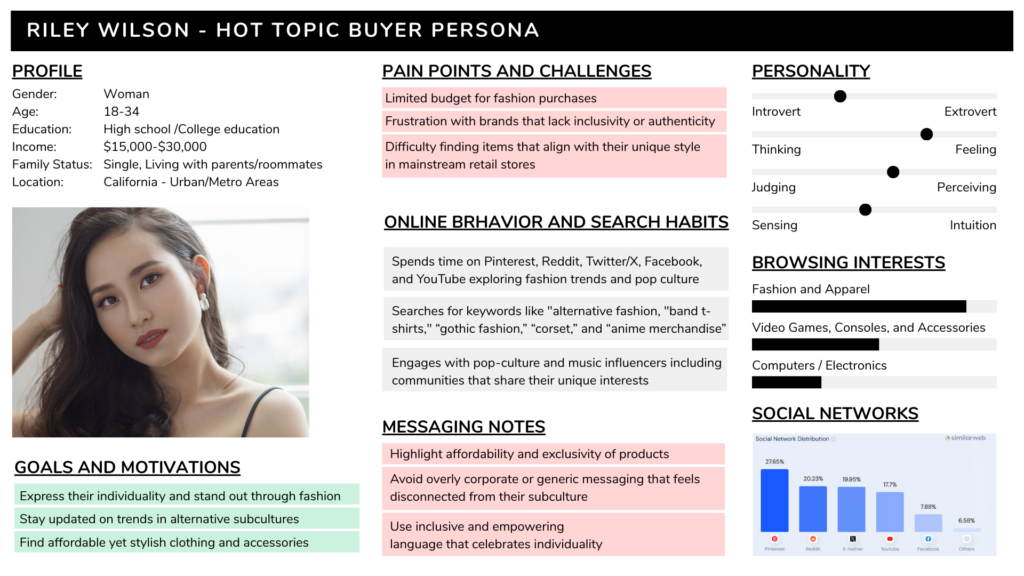
Five Takeaways from My Internet Marketing and E-Commerce Course
Digital marketing is an ever-evolving landscape, constantly shaped by new technologies, shifting consumer behaviors, and innovative strategies. To keep up in this dynamic industry, professionals must embrace continuous learning and adaptation, ensuring their strategies remain relevant and effective. After completing my recent course on internet marketing and e-commerce, I gained five key insights that changed how I approach online business. These lessons go beyond theory, as they offer practical frameworks, tools, and strategies that can drive real results. Whether you’re looking to refine your marketing tactics, enhance website performance, or craft more engaging campaigns, these takeaways will help you navigate the digital world with confidence and creativity.

1. UX Design Fundamentals: The Backbone of Digital Success
User Experience (UX) design is more than just making a website look good, it’s about ensuring visitors can navigate efficiently, find information quickly, and complete actions effortlessly. When UX is poorly executed, users may struggle to find what they need, encounter broken links, or face frustratingly complex processes, leading to increased bounce rates and lost opportunities. On the other hand, strong UX fosters trust by offering an intuitive, user-friendly experience that makes interactions efficient and enjoyable. The best practices of UX design ultimately not only improves customer satisfaction but also boosts engagement, encourages repeat visits, and drives conversions.
Example/Application: For an e-commerce site, if the checkout process is cluttered or complicated, customers might abandon their carts. However, with UX best practices like intuitive navigation, clear product descriptions, and an easy checkout process, more visitors will complete their purchases.
Real-World Use: Whether designing a website from scratch or optimizing an existing one, applying UX principles ensures better engagement and sales. Businesses should regularly test user flows, simplify navigation, and remove unnecessary obstacles to boost customer satisfaction and retention.

2. Google Analytics Certification: Turning Data into Action
Data-driven decision-making is essential for successful digital marketing, allowing businesses to optimize their strategies based on real user interactions. Google Analytics is one of the most powerful tools available for gathering insights, providing detailed reports on areas including website traffic, audience demographics, user behavior, and campaign performance.
Completing the Google Analytics certification strengthened my ability to analyze key metrics, identify trends, and make informed decisions that improve marketing effectiveness. I learned how to track important data points, such as bounce rates, session duration, and conversion paths, to understand how users engage with a website. Additionally, I gained proficiency in setting up goal tracking, segmenting audiences, and using reports to assess the success of advertising efforts
Example/Application: A blog struggling to attract readers can use Google Analytics to identify which articles generate the most traffic and which pages have the highest bounce rates. With this knowledge, the blog owner can refine content strategy by focusing on engaging topics and improving weak-performing pages.
Real-World Use: Whether managing an e-commerce store or running a service-based website, leveraging analytics helps track conversion rates, improve user experience, and refine marketing strategies based on real data instead of guesswork.

3. WordPress Website Creation Practice: Building Digital Presence
Getting hands-on experience with WordPress solidified my understanding of website development, from customizing themes, utilizing plugins, creating engaging blog content, and structuring website pages. Knowing how to build and maintain a site is invaluable for businesses, bloggers, and entrepreneurs alike.
Example/Application: A freelance photographer creating an online portfolio can use WordPress to design a mobile-friendly site with booking functionality and SEO optimization to attract potential clients.
Real-World Use: Whether launching an online store or a personal brand, WordPress enables business owners to create a professional website without needing extensive coding knowledge. Regular updates, security enhancements, and content optimization are key to maintaining an effective site.

4. Buyer Persona Creation: Understanding Your Ideal Customer
Without a clear understanding of your target audience, marketing efforts will be ineffective. Creating detailed buyer personas helps businesses tailor their messaging, design better products, and improve customer engagement.
Example/Application: A subscription-based coffee brand aiming to attract young professionals might develop a persona named “Emily,” a 29-year-old urban dweller who values sustainability and convenience. With this profile in mind, the brand can create content, social media ads, and promotions that resonate with Emily’s preferences.
Real-World Use: Buyer personas guide branding, content marketing, and advertising decisions. The more detailed they are including pain points, interests, and buying behaviors the more effective marketing strategies become.

5. Online Advertising Concepts
Online advertising is a powerful tool when used strategically. From pay-per-click (PPC) campaigns to social media ads, understanding key concepts like targeting, bidding strategies, and ad creatives can significantly impact ad results.
Example/Application: A small business selling eco-friendly home products could use Facebook Ads to target environmentally conscious consumers. By testing different ad formats (carousel vs. video) and adjusting audience targeting, they can refine their approach to maximize engagement and sales.
Real-World Use: Whether running Google Ads or social media promotions, businesses must optimize their budget, create compelling visuals, and analyze metrics to improve performance.
Final Thoughts
These five takeaways from my internet marketing and e-commerce class including UX fundamentals, online advertising concepts, Google Analytics, WordPress website creation, and buyer persona development are essential for anyone looking to thrive in digital marketing. Whether you’re a business owner, marketer, or aspiring entrepreneur, applying these skills will help you connect with customers, boost conversions, and build a strong online presence.
Ready to elevate your marketing game? Start by implementing one of these takeaways today: test a new ad strategy, optimize your website’s UX, or refine your buyer persona. Small, strategic steps can lead to big results!